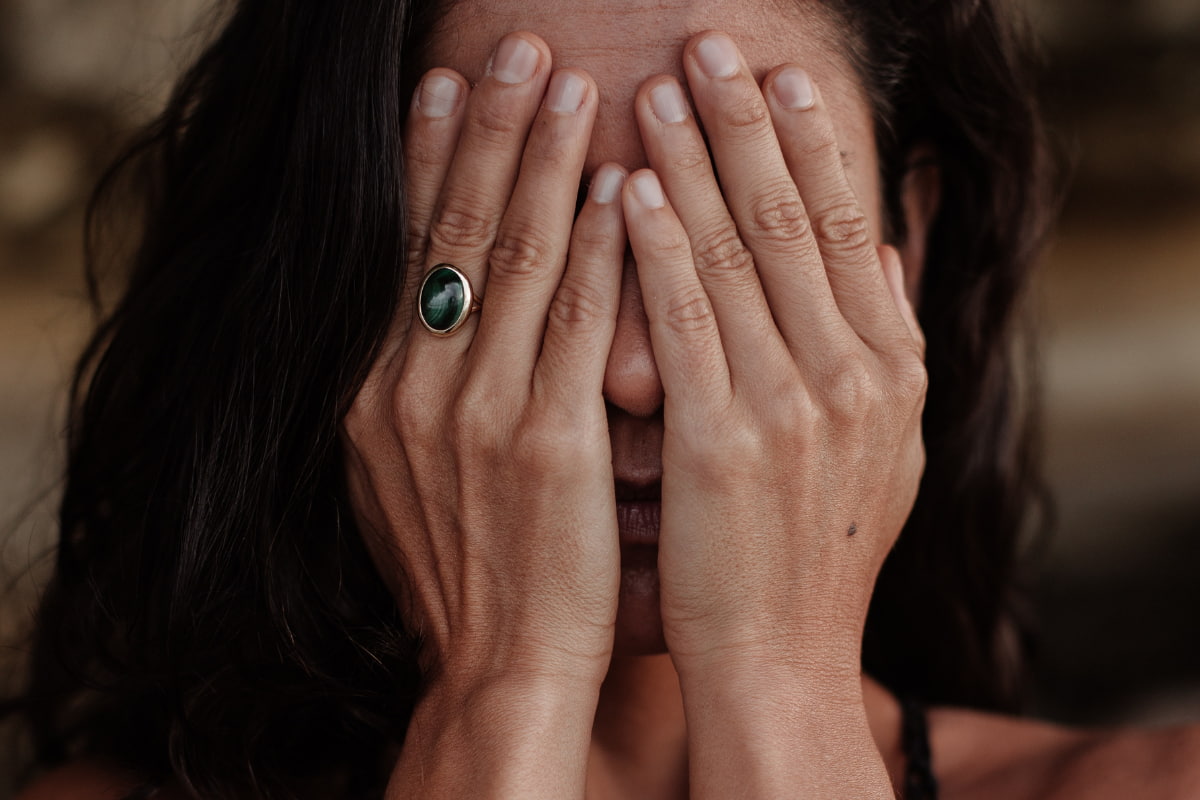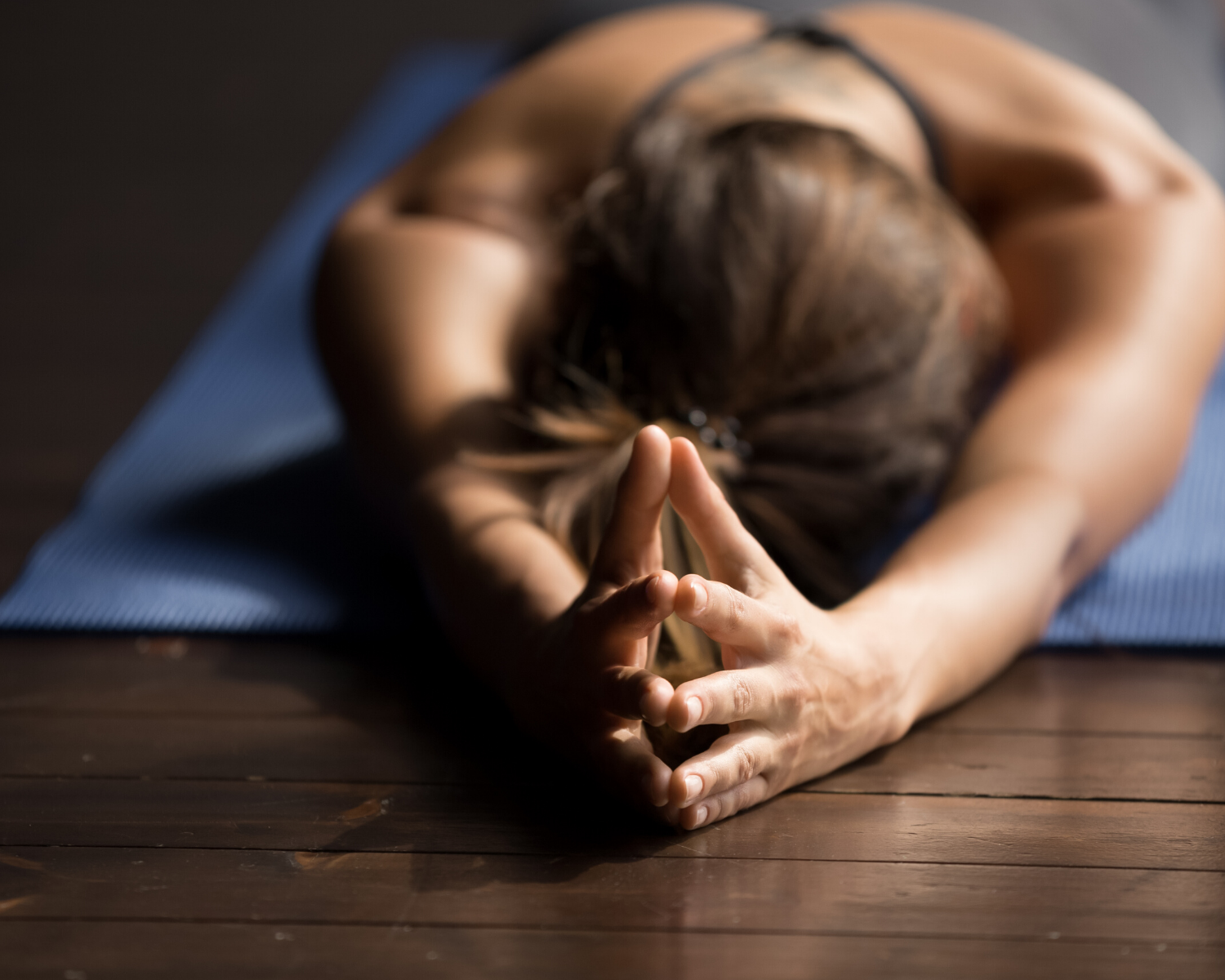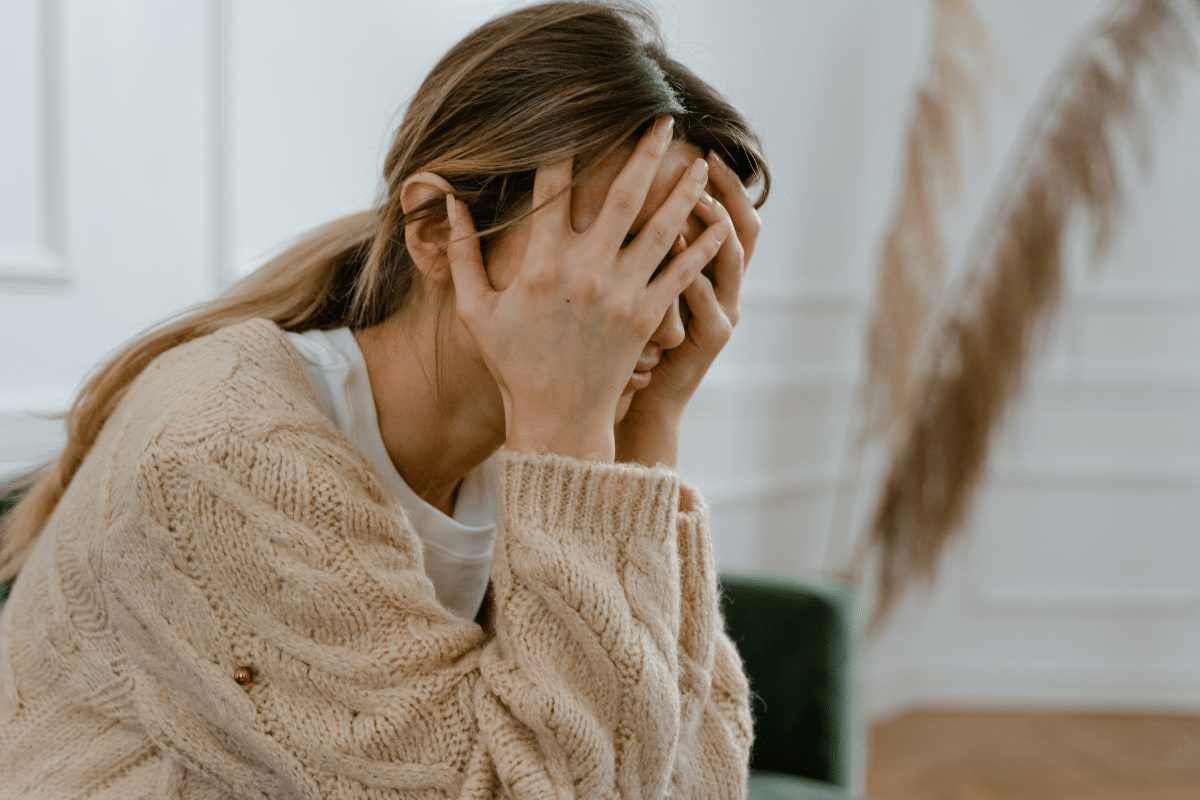How to Relieve Anxiety During Menopause

Are you feeling anxious during menopause? You’re not alone. The prevalence of anxiety symptoms in midlife women is substantial, with estimates as high as 51 percent of women 40-55 years old. However, knowledge is power. By understanding the symptoms of anxiety, why menopause causes anxiety, how long it may last, and treatment options, you can take control. In this article, we’ll cover each of these topics to help you put your mind at ease.
Symptoms of Anxiety
Anxiety symptoms can be both physical and psychological. In severe cases, you might feel nervous, tense, fearful, restless, have difficulty concentrating, experience racing thoughts, or even panic attacks. Physically, you may notice symptoms like sweating, shaking, nausea, diarrhea, rapid heart rate, fast breathing, chest pain, and sleep problems. Over the long term, anxiety can cause health problems, including depression, digestive issues, insomnia, chronic pain, and loss of interest in sex, to name a few. Issues like not sleeping well and feeling depressed, as well as simple things like too much caffeine, can make anxiety worse.
Does Menopause Cause Anxiety?
Every woman’s menopause journey is unique, and, for many, it is unpredictable. Unpredictable situations tend to make us anxious. A review of several studies examined the relationship between menopause and anxiety. The results revealed the challenges of measuring menopausal status, anxiety symptoms, and how to identify physical and psychological symptoms accurately. Although limited, research supports that women have a higher risk of experiencing anxiety during menopause transitions than premenopausal women. A study of 2,956 women examined four symptoms of anxiety during ten years of follow-up to determine the association between the menopausal stage and high anxiety. The researchers concluded that women with high anxiety while premenopausal may be chronically anxious, and not at increased risk of high anxiety at specific stages of the menopausal transition. In contrast, women with low premenopausal anxiety may be more susceptible to high anxiety during and after the menopausal transition than before.
When it comes to hot flashes and night sweats, it is controversial whether anxiety causes hot flashes or if hot flashes make you anxious. Either way, it’s worth experimenting with anxiety-relieving activities. You may find that your hot flashes diminish in frequency and intensity, and your anxiety lessens. If your anxiety doesn’t go away, try doing the opposite. Experiment with hot flash-relieving activities and see if they help relieve your anxiety.

Holistic Treatments for Menopause-Related Anxiety
Therapy
Talk to your doctor or find a therapist. Your doctor may recommend counseling, individually or in a group setting. Cognitive Behavioral Therapy is effective in helping menopausal women with anxiety, among other symptoms of menopause. It is a therapeutic strategy that concentrates on the physical symptoms, thoughts, feelings, and behavior of menopause-associated anxiety and the links between them. Your emotions and actions are often influenced by how you think about the symptoms. Changing your thought patterns can improve your coping skills and reduce the impact that menopause is having on your life.
Paced Breathing
Paced breathing is an easy technique you can do virtually anywhere, anytime. How does it work? It’s ideal to find a comfortable position seated or lying down. Close your eyes if you can. If these steps are not available to you, you’re in the car or in a meeting, for example, no worries! Relax your shoulders. Using the “4-7-8” technique, inhale deeply for four seconds, watching your stomach and chest rise. Hold your breath for seven seconds; then slowly exhale for eight seconds (or longer). A 15-minute session is ideal, but even 3-5 in/out breaths will help.
Other Coping Strategies for Menopause Anxiety
- Watch your diet – Caffeine and alcohol can worsen symptoms, while complex carbohydrates act as a mild tranquilizer and steady your emotions. A plant-based or Meditteranean diet is most beneficial for managing menopause symptoms.
- Get some exercise – Exercise will give you a quick boost of endorphins and can help your body relax and serve as a stress reliever.
- Try relaxation techniques – Simply doing things that relax you, such as listening to music or going for walks, can have a positive impact on anxiety.
- Make time for self-care – Self-nurturing activities like massage, a warm bath, yoga, meditation, or quiet time by yourself can help release tension and anxiety. Build self-care and relaxation techniques into your day by including them on your calendar and to-do list.
- Get enough sleep – Pay attention to sleep hygiene. Getting a good night’s sleep is a natural relaxer.
- Keep a journal – Writing down your nervous or anxious thoughts right before bed can help put your mind at rest and ensure a good night’s sleep. Journaling is also effective at any time of the day to create self-awareness and shift your thoughts from negative to positive.
- Digitally detox from news and social media – too much bad news, especially first thing in the morning or right before you go to bed, can trigger anxious thoughts. Limit the amount of time you spent on news and social media to 30 minutes a day or less, and preferably not first thing in the morning or the evening. Move your phone to another room during sleep, and use an old-school alarm clock to avoid the temptation of checking your phone in the bedroom.
- Maintain a positive attitude – Focusing on negative thoughts only makes anxiety and depression worse. On the other hand, focusing on the positive can keep anxiety and depression at bay.
- Get support – Finding a community of women going through menopause and supporting one another as you navigate the changes can be helpful.
For more support in dealing with anxiety, download Midday from the App store, the only menopause app you’ll ever need. If you find yourself struggling to manage your day-to-day life, speak with your doctor immediately. Seeking help can put you back on the path to emotional well-being.
Sign up for more unique women’s health content
By submitting this form, you agree to the Lisa Health Privacy Policy and Terms of Use


